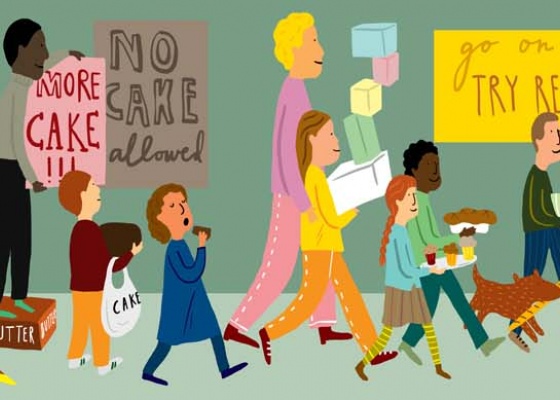Nutritional needs can vary as our bodies and health needs change.
We are so used to following public health messages that are focused on weight loss, eating low fat products, eating more fruit and vegetables, less sugar, treats and puddings. This style of eating is not always recommended for people who have a small appetite, find they are losing weight, or who are finding it difficult or tiring to eat.
There is no point struggling through a bowl of salad if that is all you can manage to eat all day.
Why do we lose interest in food and appetite?
Life changes as we age are complex and very individual, and can often contribute to loss of interest in food and appetite.
1. Loss and bereavement
Loss and bereavement spans right across life. It doesn’t just relate to death. It is often accumulative loss, perhaps of work identify through retirement, of good health, of being young or the loss of ability, activities and hobbies, a walking partner, best friend or the dog.
Loss through bereavement will be a major stress, and can reduce our resilience and ability to cope and remain independent. In practical terms, life may have changed dramatically. We may have less money, have to eat, sleep and live alone for the first time, or be faced with household or financial tasks that we haven’t done before.
2. Becoming a carer
Becoming a carer for a loved one can be a real shock, changing our relationships, lifestyles, routine and expectations. Caring in some respect will touch the lives of most of the population. Every year, over 2 million adults become carers and almost as many people find that their caring responsibilities come to an end.
Undertaking and losing a caring role can sometimes make eating a low priority and carers are very much at risk of becoming malnourished themselves.
3. Loneliness
Sometimes when we live or feel alone, particularly if you don’t see family or friends very often, or we are feeling bereft, it can be more difficult to eat well or bother to plan, shop and prepare a meal, which then is often eaten alone.
4. Financial worries
Low income and worries about finances remain a significant contributor to poor health and wellbeing among some older people.
5. Long-term conditions
Increasing numbers of us will be diagnosed with long-term conditions such as diabetes, hypertension, angina, chronic obstructive pulmonary disease (COPD) and chronic pain conditions such as arthritis. This can all have an impact on us eating enough.
6. Mental Health
Anxiety and depression are very real and can sometimes be overlooked by healthcare professionals, even though they are easily diagnosed and can be treated. Read more about looking after your mental health.
All these changes lumped together can cause us to feel vulnerable, lonely and isolated and make us feel low in mood or depressed. This can impact our appetite and we may not notice we are not eating enough to maintain our health.
If you recognise any of these feelings, think about going to see the GP or talk to a health care professional.

